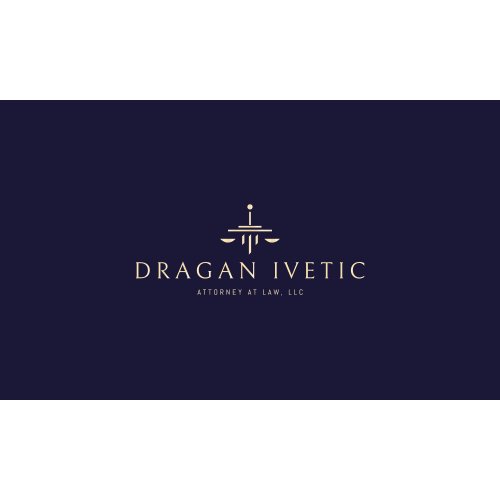Best Natural Resources Lawyers in Chicago
Share your needs with us, get contacted by law firms.
Free. Takes 2 min.
List of the best lawyers in Chicago, United States
About Natural Resources Law in Chicago, United States
Natural resources law in Chicago, Illinois, is a multifaceted field that involves the regulation and management of natural resources such as land, water, minerals, forests, and wildlife. Chicago, being part of Illinois, follows state laws while also abiding by federal regulations governing natural resources. The area's urban environment poses unique challenges and opportunities in managing resources sustainably while supporting economic development. Key aspects include environmental protection, resource conservation, and sustainable land use planning.
Why You May Need a Lawyer
Individuals or organizations may require legal assistance in natural resources law for several reasons, including:
- Land Use and Zoning Issues: Navigating the complexities of zoning laws and land use regulations in urban and suburban areas.
- Environmental Compliance: Ensuring adherence to environmental regulations related to air, water, and soil quality.
- Resource Exploitation and Conservation: Legal guidance on issues related to the extraction and use of natural resources such as minerals and forests.
- Property Rights Disputes: Managing disputes involving ownership, access, or usage rights over land or resources.
- Water Rights and Usage: Addressing legal issues pertaining to water resources management and allocation.
Local Laws Overview
Chicago follows both state and federal regulations when it comes to natural resources, with specific local ordinances that address urban challenges. Key aspects include:
- Environmental Protection: Chicago has specific ordinances focused on reducing pollution and preserving green spaces as part of its sustainability objectives.
- Zoning Regulations: The city uses zoning laws to control land use, helping to maintain a balance between development and conservation.
- Water Management: Regulations are in place to manage water resources, focusing on quality, stormwater management, and conservation.
- Energy Use: Policies that promote renewable energy use and efficiency to reduce environmental impacts from energy consumption.
Frequently Asked Questions
What is natural resources law?
Natural resources law encompasses legal issues related to the use, management, and conservation of natural resources such as land, water, minerals, and wildlife.
Why is it important to understand local natural resources laws?
Understanding local laws is crucial because they directly impact property rights, resource usage, and compliance with regulations specific to Chicago and Illinois.
How can a lawyer help with a land use issue in Chicago?
A lawyer can assist by ensuring compliance with zoning laws, obtaining necessary permits, and representing clients in legal proceedings related to land disputes.
What are some common zoning challenges in Chicago?
Common challenges include understanding zoning restrictions, obtaining variances, and resolving disputes between residential and commercial land uses.
What are the penalties for violating environmental regulations in Chicago?
Penalties can range from fines to legal action, depending on the severity of the violation and its impact on the environment.
How does Chicago's approach to water management affect residents?
Chicago's water management policies can affect water usage rights, stormwater fees, and compliance requirements for businesses and homeowners.
What role does the Illinois Environmental Protection Agency play?
The Illinois EPA enforces state environmental laws, issues permits, and oversees compliance with federal and state regulations concerning natural resources.
Do I need a permit for drilling or mining activities in Illinois?
Yes, specific permits are required for drilling, mining, and other extractive activities, governed by both state and federal regulations.
Can I challenge a zoning decision in Chicago?
Yes, it is possible to challenge a zoning decision by appealing to the city's zoning board or through legal action if necessary.
Is hiring a lawyer necessary for every natural resources issue?
While not always necessary, hiring a lawyer is recommended for complex issues involving significant legal or financial risks or when navigating regulatory processes.
Additional Resources
For further information on natural resources in Chicago, consider the following resources:
- Illinois Environmental Protection Agency (IEPA): Provides resources and regulatory information for managing natural resources.
- Chicago Department of Planning and Development: Offers guidance on land use and zoning regulations.
- Environmental Law and Policy Center: A regional environmental advocacy organization providing legal insights and support.
- Illinois Department of Natural Resources (IDNR): Manages state parks, wildlife conservation, and resource use.
Next Steps
If you need legal assistance in the field of natural resources in Chicago, consider the following steps:
- Identify the specific issue or legal concern you are facing, whether it's related to land use, environmental compliance, or resource management.
- Conduct research to better understand your rights and responsibilities under local and state laws.
- Consult with a qualified attorney specializing in natural resources law to advise on your case's legal options and implications.
- Gather relevant documents, permits, and evidence related to your issue to provide your attorney with comprehensive information.
- Work with your attorney to develop a strategy to resolve your issue, which may involve negotiation, mediation, or litigation.
Lawzana helps you find the best lawyers and law firms in Chicago through a curated and pre-screened list of qualified legal professionals. Our platform offers rankings and detailed profiles of attorneys and law firms, allowing you to compare based on practice areas, including Natural Resources, experience, and client feedback.
Each profile includes a description of the firm's areas of practice, client reviews, team members and partners, year of establishment, spoken languages, office locations, contact information, social media presence, and any published articles or resources. Most firms on our platform speak English and are experienced in both local and international legal matters.
Get a quote from top-rated law firms in Chicago, United States — quickly, securely, and without unnecessary hassle.
Disclaimer:
The information provided on this page is for general informational purposes only and does not constitute legal advice. While we strive to ensure the accuracy and relevance of the content, legal information may change over time, and interpretations of the law can vary. You should always consult with a qualified legal professional for advice specific to your situation.
We disclaim all liability for actions taken or not taken based on the content of this page. If you believe any information is incorrect or outdated, please contact us, and we will review and update it where appropriate.

















